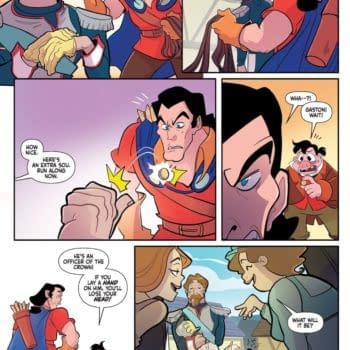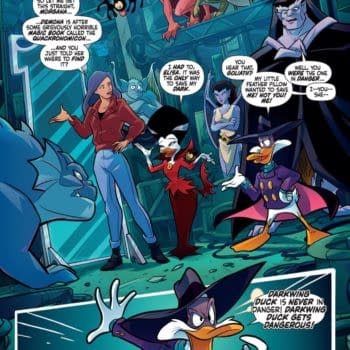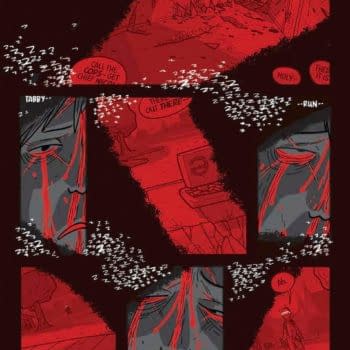Posted in: Games | Tagged: badfly, Blacklist, dead effect 2, journalistic untegrity
Game Developer Busted For Openly Stating Unspoken Industry Rules In Letter Threatening Blacklist For Bad Reviews
Dead Effect 2 developer BadFly games is under fire today after a letter sent along with review codes for the game went public, exposing a blatant threat to blacklist outlets who wrote negative reviews.
Let me just mention one thing, though: this is an indie game which, unfortunately, is very often compared with big-budget games, and that's quite a problem and very much damages its reputation in final ratings.
Please take into consideration the fact that this game was created by a small team of developers (11) who just try to develop a good shooter game, and that's about it.
Unfortunately, a number of journalists have other, much bigger expectations from it, and that's very damaging for us eventually.
Also, we're working on several other games that are definitely interesting, and if your review or preview of Dead Effect 2 is very negative, you won't receive any keys from us in the future.
Once the cat was out of the bag, BadFly apologized to Shawn Petraschuk, author of the original article, and later released a prepared statement:
We create B-class horror first-person shooters on purpose. We love it! However, we have experienced reviews that compared us with big AAA titles like Left4Dead or Mass Effect and gave us extremely low ratings.
Sadly, there are reviewers – trolls, who are writing biased reviews. The last sentence of our email was addressed to these unfair reviewers. Try to imagine our situation: you wouldn't give another free key to a man who without any proper reasoning destroyed your game in their review, either. Any negative review can have a big impact on the studio, especially if the review is published before the official release.
We will not withhold keys because of negative previews if these previews are realistic and honest. The point of our message was just to see us as what we are – a small indie studio.
We would like to point out that we have changed the text sent with keys to reviewers even before this 'cause' popped up, so there is no sentence about not giving keys in the future anymore. Yes, we found out on our own that this wording is awkward and we stopped using it.
Lesson learned.
Also, the guy who wrote that message is being tortured in the basement now.
I can't personally speak for the gaming press and industry, coming primarily from the comics press, but to me, it seems like the biggest faux pas BadFly committed was openly stating what is otherwise understood by all parties in entertainment media to be the unspoken reality. You either play ball, or you get less (or no) access. It's no big secret that the websites that have the most EXCLUSIVE interviews and early access to PR-controlled "news" are also the websites with the least negative coverage of comic book publishers, the most reluctance to cover stories like Eddie Berganza's multiple allegations of sexual harassment until left with no other choice because the noise is getting too loud, and the most optimistic viewpoints on comics news that slant more toward selling products than serving consumer interest.
From what I can gather, this is widespread in all genres of entertainment media, from comics to film to video games to tech gadget journalism. Access to content from publishers (or gamemakers, or film studios, or smartphone manufacturers, or whatever) equals easy clicks for a website. Clicks equal revenue. Become dependent enough on these clicks (which is quite easy in the current media landscape), and it's a simple reality of the business that the subjects you're reporting on can reward or punish you for your coverage by directly affecting your revenue stream through providing or withholding more content. This is understood by all parties, and doesn't need to be stated openly.
Nevertheless, some companies are so unable to handle criticism, they feel the need to do so anyway. A good indicator that a company may have a problem dealing with criticism is when they believe that reviewers are trolls out to get them by writing purposely bad reviews. I have personal experience with this matter.
Back when I was co-siterunner at TheOuthousers.com, we were famously blacklisted by DC Comics because the publisher didn't appreciate our (mostly mine and fellow co-siterunner Christian Hoffer's) satirical articles making fun of them. Comic book publishers are notoriously thin-skinned as when it comes to public criticism, in my experience, as evidenced by rumors that Marvel tries to make some employees sign contracts agreeing not to badmouth Marvel on social media for all of eternity. The way DC went about blacklisting The Outhouse was to repeatedly send us emails offering interviews with talent at C2E2, but when we would respond with lists of the people we would like to interview, they would simply not answer us. Finally, one of our reporters at the convention, Zecchs, was contacted by DC's PR rep by phone, who arranged an in-person, back room meeting at the convention attended by both Zecchs and another reporter, Sarah Sed. The PR rep let them know that they could only interview DC talent if The Outhouse reduced its negative satirical content about DC Comics.
Of course, we didn't do that. Instead, we exposed what DC had done (as reported right here on Bleeding Cool), and we soon launched the Has DC Done Something Stupid Today website, tracking all the dumb things DC has done over the years.
But it wasn't the denial of access that was the problem there. Marvel effectively blacklisted the website, I believe, around that same too. However, rather than outright state it, they simply stopped sending us press releases and interview opportunities. We never complained about Marvel doing this, because it was the accepted, understood consequence of publishing negative coverage of a comic book publisher. But by putting into words what is otherwise an unspoken understanding, DC Comics ended up making themselves look like thin-skinned bullies, and ultimately giving more attention to the negative coverage that bothered them so much in the first place. It backfired. Just as this has for BadFly.
BadFly screwed up here, clearly, resulting in negative PR that they justly deserve, but it's not because they expect websites to provide positive press coverage in exchange for access to talent, information, and review copies. It's because they were foolish enough to come right out and say it.

















